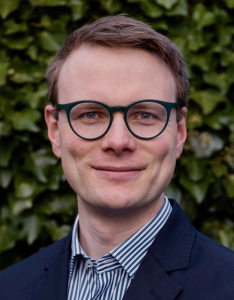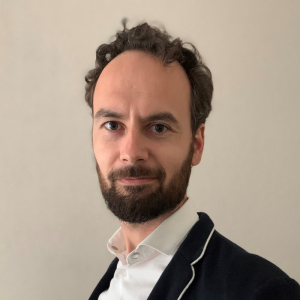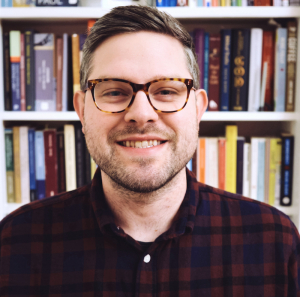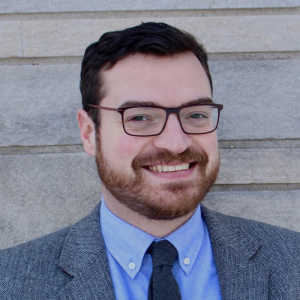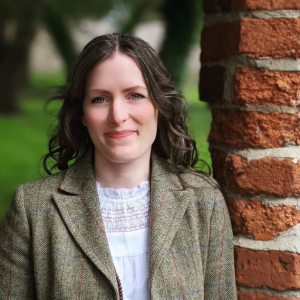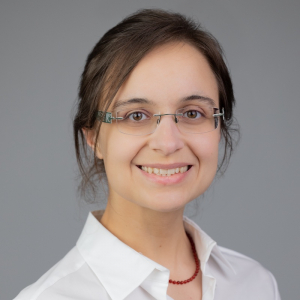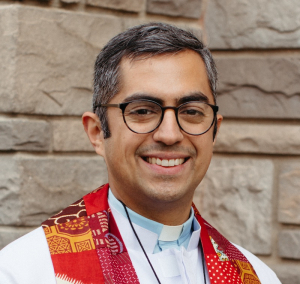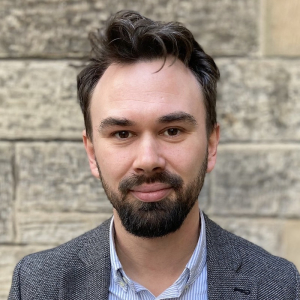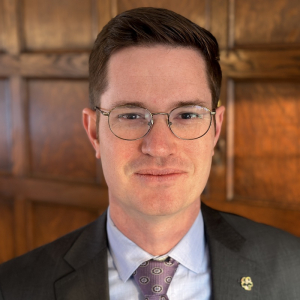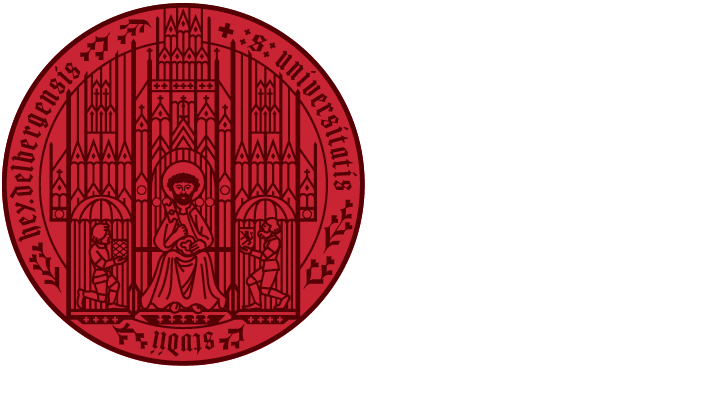Biblical Heroes and Classical Culture in Christian Late Antiquity
Current Position:
Carson Bay is postdoctoral researcher at the Institute for Jewish Studies at the University of Bern, Switzerland, and a member of the SNF research project Lege Iosephum! Ways of Reading Josephus in the Latin Middle Ages.
Current Research Activities:
Bay’s current book project will be the first detailed study of how Sefer Yosippon, an early-10th century Hebrew narrative that retells Jewish history up to 74 CE, engages its most important source, a Latin Christian rewrite of Flavius Josephus’ Jewish War. This study shows how the most important piece of medieval Jewish historiography simultaneously underwrites (i.e. endorses) a historicized view of Jewish identity grounded in Hellenistic Judaism and overwrites (i.e. replaces) a contrasting Latin Christian view of historical Jewishness, thereby resurrecting ‘the spirit of Hellenistic Judaism’ for the medieval Jewish imaginary.
“God and spirituality” in the award-winning publication:
Late ancient Christians often looked to the heroes of their Old Testament to understand God and navigate spirituality. Biblical Heroes and Classical Culture in Christian Late Antiquity shows how this impacted the Christian iteration of later Second Temple Jewish history (167 BCE–74 CE) in a 4th-century CE Latin text. On the Destruction of Jerusalem, attributed to an anonymous ‘Pseudo-Hegesippus,’ is a Classical-Christian history that embeds dozens of biblical figures into its character speeches and narrative background. This shows that Christians in late antiquity used biblical personalities to ‘think with’ while writing the history of later periods, especially as it pertained to God’s relationship with the Jews over time. At the same time, Pseudo-Hegesippus’ deployment of biblical figures mirrors the Roman practice of exemplarity, whereby ancient Mediterranean writers and rhetoricians leveraged famous exempla (‘paradigmatic examples’) to negotiate ethical, political, historical, and social questions. This book, therefore, not only illustrates how Christians writing theologically-loaded history in late antiquity utilized biblical personalities—it also shows how Roman such a literary-rhetorical practice was. Early Christian thinking about history and the Jews naturally implicated God and theology, and its scribal expression would have been understood as a spiritual act. As this book shows, such conceptualization and articulation could make much use of the heroes of sacred Scripture, and it could do so in way that was as Classical as it was Christian.
Academic Address:
University of Bern
Faculty of Theology
Institute for Jewish Studies
Unitobler 314D
Längassstrasse 51
3012 Bern
Switzerland
Award-Winning Work:
Ester – Eine Gewaltgeschichte. Die Gewaltdarstellungen in der hebräischen und griechischen Esterüberlieferung
Current Position:
Postdoctoral researcher (funded by the German Research Foundation), Ruhr-Universität Bochum, Faculty of Theology (Prof. Dr. Joachim Krause)
Current Research Activities:
Helge Bezold is currently working on a habilitation thesis on the book of Joshua, in which he re-evaluates the conquest narrative’s socio-political intentions by drawing on both historical-critical methods and postcolonial theory.
“God and spirituality” in the award-winning publication:
With its drastic depiction of violence and with its lack of any explicit reference to God, the book of Esther is one of the most ethically and theologically troubling biblical narratives. The Greek Esther narratives further complicate matters insofar as they add a theological dimension by portraying God both as the instigator of the plan to annihilate the Persian Jews, but also as helping his people to fight the opponents. In my dissertation, I explore how the Hebrew and the two Greek traditions of Esther make use of different patterns justifying divine and human violence, how the extent of violence was minimized but sometimes also intensified in later tradition, and how this textual debate is coupled with the Jewish people’s historical experiences with violence in the Graeco-Roman period.
Academic Address:
Ruhr-Universität Bochum
Evangelisch-Theologische Fakultät
Heisenberg-Professur für Literaturgeschichte des Alten Testaments
GA 8/158
Universitätsstraße 150
44801 Bochum, Germany
Award-Winning Work:
Religion and the Everyday Life of Manichaeans in Kellis: Beyond Light and Darkness (Leiden: Brill, 2022)
Current Position:
Postdoc at the Department of Religious Studies, University of Zürich
Current Research Activities:
Mattias Brand is currently working on a large-scale comparative project, asking how individuals and families select and transform religious objects when bringing them into the home.
“God and Spirituality” in the award-winning publication:
Religion is never simply there. Large ideas about the divine, the cosmos, and spirituality are embedded in the cultural and material conditions of everyday life. Religion and the Everyday Life of Manichaeans in Kellis explores this embeddedness in the context of the transformation of religion in late antiquity from localized systems to mobile and universal groups. The microhistorical analysis of Greek and Coptic personal letters, found in a secure archaeological context, highlights when ordinary individuals and families in late antique Egypt practiced a Manichaean way of life, where it was performed, and how it was lived within the social and political context of Roman Egypt. Rather than portraying Manichaeism as a well-structured, totalizing religion, the papyri sketch a dynamic image of lived religious practice, with all the contradictions, fuzzy boundaries, and limitations of daily life. By adopting recent social scientific approaches, this book offers novel ways of conceptualizing how late antique individuals and families engaged with ideas about God and spirituality in an everyday village context.
Academic Address:
Kantonsschulstrasse 1
8001 Zürich
Switzerland
E‑Mail: Mattias.Brand@uzh.ch
Award-Winning Work:
The Apostle to the Foreskin: circumcision in the Letters of Paul
Current Position:
Tutor in Biblical Studies at the University of Edinburgh
Current Research Activities:
I am currently developing a project that explores religious innovation in early Judaism and the New Testament. The project highlights the methodological issue of how we categorize religious innovation and development in early Judaism, and how reading the New Testament as Jewish literature problematizes and informs our understanding of Jewish religious change.
„God and Spirituality“ in the award-winning publication:
The Apostle to the Foreskin re-examines the language of circumcision and foreskin in the letters of the apostle Paul. By attending to the rhetorical and epistolary contexts of Paul’s circumcision discourse, this study challenges prevailing interpretations of key Pauline texts, offering new insights into texts that have been commented on for the better part of two millennia. I demonstrate that Paul’s discourse on circumcision and foreskin is driven by his understanding of ethnicity and is contextualized within his letters written to audiences composed of foreskinned non-Jews. This examination shows that the primary rhetorical aim of Paul’s discourse on circumcision is to dissuade non-Jews from becoming circumcised as a means to place themselves in a positive position vis-à-vis Israel’s god. Rather than presenting a Christian Paul that rejects circumcision for everyone, this study argues for a Jewish Paul that only rejects circumcision for non-Jews.
Academic Address:
Dr Ryan Collman
New College
Mound Place
Edinburgh, EH1 2LX
United Kingdom
Providence and Narrative in the Theology of John Chrysostom
Current Position:
Robert Edwards is a Postdoctoral Research Fellow at Georg-August-Universität Göttingen, supported by the Alexander von Humboldt Foundation.
Current Research Activities:
Edwards’ current research explores how early Christians approached preaching at the major festivals of the liturgical year: Christmas, Epiphany, Easter, Pentecost, and Ascension. In keeping with this larger project, Edwards has completed a translation of John Chrysostom’s festal sermons, forthcoming with St Vladimir’s Seminary Press’s Popular Patristics Series.
„God and Spirituality“ in the award-winning publication:
Academic Address:
–
The Midwifery of God: Tokological Deliverance in 1 Timothy 2:15 in Light of Early Jewish and Early Christian Readings of Genesis 3:16 (Doctoral Dissertation, University of Nottingham, 2022).
Current Position:
Emily Gathergood is Research Fellow in the Department of Theology & Religious Studies, University of Nottingham, UK.
Current Research Activities:
Emily is currently revising her doctoral dissertation for publication and developing her second book project, ‘Birthing Disciples: Divine and Human Transformation in Early Christianity,’ a study of gender, embodiment, and perfection in and beyond the New Testament.
“God and Spirituality” in the award-winning publication:
The Midwifery of God examines the intersections of maternity and divinity in early Jewish and Christian writings. The theological motif of ‘tokological’ deliverance is explored through intertextual analysis of canonical and apocryphal receptions of the Genesis myth of Eve’s postlapsarian judgement. The central thesis is that these sacred texts conceptualise God in feminine terms, as the heavenly Midwife who physiologically delivers parturient women through the difficulties of childbearing. The study reframes established accounts of early Christian soteriology, which favour the generic or androcentric, by attending to the deliverance of the female body and soul.
Academic Address:
Department of Theology & Religious Studies
University of Nottingham
University Park
Nottingham, NG7 2RD
United Kingdom
Der Libellus carminum des Eugenius von Toledo. Poesie als Lebensbewältigung und spirituelle Praxis
Current Position:
Postdoctoral research assistant and lecturer in Ancient Church History and Patristics at the University of Regensburg, Chair of Prof. Andreas Merkt
Current Research Activities:
Annemarie Pilarski is preparing her habilitation project on episcopal conflict management in Late Antiquity, taking bishop John II of Jerusalem, an important but relatively understudied figure of his time, as a case study. It is to be expected that his conflict management strategies encompass a wide array of ecclesiastical activities, ranging from the more obvious strategies of episcopal communication, e.g. via preaching and correspondence, to less obvious fields of managing conflict, such as relics policy and liturgical innovation.
“God and Spirituality” in the award-winning publication:
Inspired by the 7th century Visigothic bishop and poet Eugenius II of Toledo, Der Libellus Carminum des Eugenius von Toledo. Poesie als Lebensbewältigung und spirituelle Praxis argues that in Late Antiquity and the Early Middle Ages, writing and reading religious poetry could be perceived as a pathway leading to God, and therefore, as a spiritual practice. The aspect of practice is crucial to spirituality, as underlined by the designation of spirituality as “ascetic” alongside “mystic”. Far from being confined to the body, ἄσκησις in Late Antiquity and beyond encompasses the entire human existence in all its bodily, affective, cognitive, and social dimensions, and it marks an active “process of ordering the self in relation to the divine” (Susan Ashbrook Harvey). By philologically analyzing the Libellus Carminum against its theological and sociocultural background and applying a history of spirituality approach, enriched by recent methodological contributions of the “history of emotions” paradigm and performance theory, it is argued that Eugenius of Toledo used poetry as a means to initiate and guide that process both for himself and potentially for his audience.
Academic Address:
Dr. Annemarie Pilarski
Lehrstuhl für Alte Kirchengeschichte und Patrologie
Fakultät für Katholische Theologie
Universität Regensburg
Universitätsstraße 31
93053 Regensburg
Combining gospels in early Christianity: the one, the many, and the fourfold
Current Position:
I currently teach adjunct New Testament at Trinity International University (Florida). I am also an associate priest at Church of the Resurrection, Washington, DC.
Current Research Activities:
I am currently developing earlier published articles into a monograph-length study on the communal reading of Scripture in ancient Judaism and Christianity. I am investigating the role that communal reading played in the construction of social identity among Jews and Christians from roughly 200 BCE to 200 CE. I am particularly interested in the alleged “parting of ways” and the consolidation of diverse corpora of sacred Scripture within these reading communities.
„God and Spirituality“ in the award-winning publication:
It is often said that the canonical/noncanonical divide among early Christian gospels was mainly the result of late second-century theological concerns. But this account does not fully consider the patterns, habits, and strategies of early Christians in their combination of gospel books as they emerged in the first and second centuries. In my study, I examine which gospels tended to keep company with one another in the reading practices of early Christians. By engaging the dynamics of gospel combinations in the Gospel of Thomas, the Epistula Apostolorum, the Diatessaron, second-century Christian authors, and early gospel manuscripts, I identify a center of gravity in early Christian gospel reading, consisting of the Synoptics and John. The propensity of the four canonical gospels to keep company with one another speaks to the unique role these gospels played in defining the literary and religious imagination of early Christianity. Their diverse yet complementary depictions of Jesus of Nazareth inspired ancient Christians of many persuasions to contemplate God and his revelation to humankind through the words and deeds of Jesus.
Academic Address:
Rev. Dr. Jacob A. Rodriguez
Trinity International University, Florida
971 Rock Island Road
North Lauderdale, FL 33068
USA
Divination and Philosophy in the Letters of Paul
Current Position:
Leverhulme Early Career Fellow in the School of Divinity at the University of St Andrews
Current Research Activities:
My current research project, The Stuff That Gods are Made Of: Divinity and Materiality in the New Testament, explores the extent to which ancient philosophical concepts and categories influence the portrayal of God’s material and embodied nature in the New Testament and other early Christian texts. This intersects with larger questions I began to explore in my first book concerning early Christian formulations of God’s relationship to the cosmos and God’s material accessibility within the world.
„God and Spirituality“ in the award-winning publication:
Divination concerns the variety of ways humans seek to communicate with the divine in order to understand God’s will for the present or God’s purposes for the future. By analysing the apostle Paul in the context of ancient divination my study reveals the continuity of ideas and practices related to communicating with God(s) across religious traditions (Jewish, Christian, Greek, Roman), while also showing how Paul’s distinctive ideas about God and the world are comprehensible within his ancient religious context. My study further demonstrates how ideas about divine communication in Paul are fully embedded within broader ideas about the nature of God and his relationship to the cosmos. Divination functions as a useful lens through which to integrate (and gain fresh insights about) diverse topics in Paul’s letters that have usually been studied in isolation from one another such as prophecy, revelation, scriptural interpretation, anthropology, cosmology, eschatology, and finally theology.
Academic Address:
St Mary’s College
University of St Andrews
South Street
St Andrews
KY16 9JU
UK
Email: mts21@st-andrews.ac.uk
Tel: +44 (0)1334 46 2876
Thomas Aquinas and Karl Barth: A New Conversation
Current Position:
I am currently an independent scholar.
Current Research Activities:
I am working on two books. The first elaborates a constructive account of the doctrine of justification through the analysis of the underlying moral concepts of justice, forgiveness and reconciliation. The second constructs a Christian ethic of work that acknowledges both work’s goodness within God’s rule and the coercive and oppressive conditions under which much contemporary work exists.
„God and Spirituality” in the award-winning publication:
Widely regarded as two of the most important figures in their respective traditions, Thomas Aquinas and Karl Barth have also been understood to represent two irreconcilable systems of Christian thought. Thomas Aquinas and Karl Barth: A New Conversation, however, demonstrates surprising and profound convergence between their understandings of God and God’s relation to creation. Their accounts of God’s mercy and justice become the means for an exchange between them that avoids the philosophical speculation that has been thought necessary for such a conversation. The result sets a new direction for both contemporary systematic and ecumenical theology.
Academic Address:


